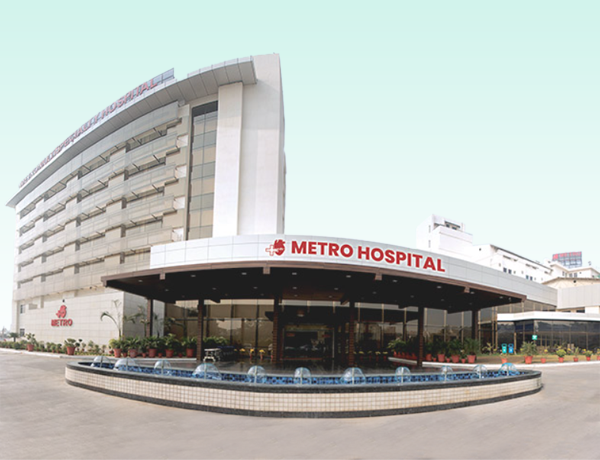Laparoscopic Mesh Hernioplasty
Laparoscopic mesh hernioplasty is a minimally invasive surgical procedure used to repair hernias. It involves the use of a mesh, a synthetic material, to reinforce the weakened abdominal wall and prevent the hernia from protruding. The laparoscopic approach uses small incisions and specialized instruments to place the mesh, resulting in faster recovery and reduced post-operative discomfort compared to traditional open surgery.

Who Needs Laparoscopic Mesh Hernioplasty
Laparoscopic mesh hernioplasty is recommended for individuals diagnosed with certain types of hernias, including:
- Inguinal Hernia: A hernia that occurs in the groin area, commonly seen in men.
- Ventral Hernia: A hernia that develops at the site of a previous surgical incision on the abdominal wall.
- Incisional Hernia: Similar to ventral hernias, these occur at the site of a previous abdominal surgery.
When to See a Specialist
If you have been diagnosed with a hernia or suspect you may have one, it is essential to consult with a specialist, such as a general surgeon or a hernia specialist. They will evaluate your medical history, perform a physical examination, and may order imaging tests to confirm the diagnosis and determine if laparoscopic mesh hernioplasty is the most suitable treatment option for you.
Procedure
- Anesthesia: You will be given general anesthesia to ensure you are unconscious and pain-free during the surgery.
- Small Incisions: The surgeon will make several small incisions in the abdominal area to access the hernia.
- Insertion of Laparoscope: A laparoscope (a thin, flexible tube with a camera) is inserted through one of the incisions to provide a magnified view of the hernia and surrounding tissues on a monitor.
- Mesh Placement: The surgeon will position the mesh over the hernia defect and secure it in place using surgical staples, tacks, or sutures.
- Closure: Once the mesh is in place, the incisions are closed with sutures or surgical tape.
Road to Recovery
Recovery after laparoscopic mesh hernioplasty typically involves the following:
- Hospital Stay: Most patients can go home the same day or the day after the surgery.
- Pain Management: You may experience some discomfort or soreness, but your healthcare team will provide pain medication to manage it.
- Activity Restrictions: For a few weeks, you may need to avoid heavy lifting and strenuous activities to allow the incisions to heal properly.
- Follow-up: Regular follow-up visits with your healthcare provider will be scheduled to monitor your recovery and address any concerns.
Risk Management
Laparoscopic mesh hernioplasty is generally considered safe, but like any surgery, there are potential risks and complications, including:
- Mesh-related complications, such as mesh migration or adhesion to nearby structures.
- Infection at the incision sites or inside the abdomen.
- Pain or discomfort in the groin or abdominal area.
- Recurrence of the hernia.
Benefits of Laparoscopic Mesh Hernioplasty
- Minimally Invasive: Laparoscopic hernia repair involves smaller incisions, resulting in less post-operative pain and quicker recovery compared to open surgery.
- Stronger Repair: The use of a mesh provides additional support to the weakened abdominal wall, reducing the risk of hernia recurrence.
- Shorter Hospital Stay: Many patients can go home the same day or the day after surgery, leading to a faster return to normal activities.
Frequently Asked Questions
1. Can the mesh cause problems in the future?
While complications related to the mesh are possible, they are relatively rare. Advances in mesh technology and surgical techniques have minimized the risk of such problems.
2. How long does it take to recover after laparoscopic hernia surgery?
Recovery times may vary, but many patients can return to normal activities within a few weeks after laparoscopic mesh hernioplasty.
3. Will I have visible scars after the surgery?
The incisions made during laparoscopic hernia repair are small and usually result in minimal scarring that tends to fade over time.
Treatians As The Best Choice
Treatians understand that seeking medical treatment abroad can be a daunting experience for patients and their families. That’s why the company offers end-to-end support to its clients, from the initial consultation to post-treatment care. The company provides personalized treatment plans that are tailored to meet the individual needs of each patient, and its team of dedicated professionals is always on hand to provide guidance and support throughout the entire process. Contact us at +91-9560960088, drop your email [email protected]
- Trauma & intensive care
- Aged Care
- Community Services
- Diagnosis & Investigation
- Medical & Surgical
- Mental Health
- Rehabitation
- Specialised Support Service
Service Recipient Says

Oxmox advised her not to do so, because there were thousands of bad Commas, wild Question Marks and devious.
Kolis Muller NY Citizen
Oxmox advised her not to do so, because there were thousands of bad Commas, wild Question Marks and devious.
Kolis Muller NY Citizen




















Oxmox advised her not to do so, because there were thousands of bad Commas, wild Question Marks and devious.
Kolis Muller NY Citizen